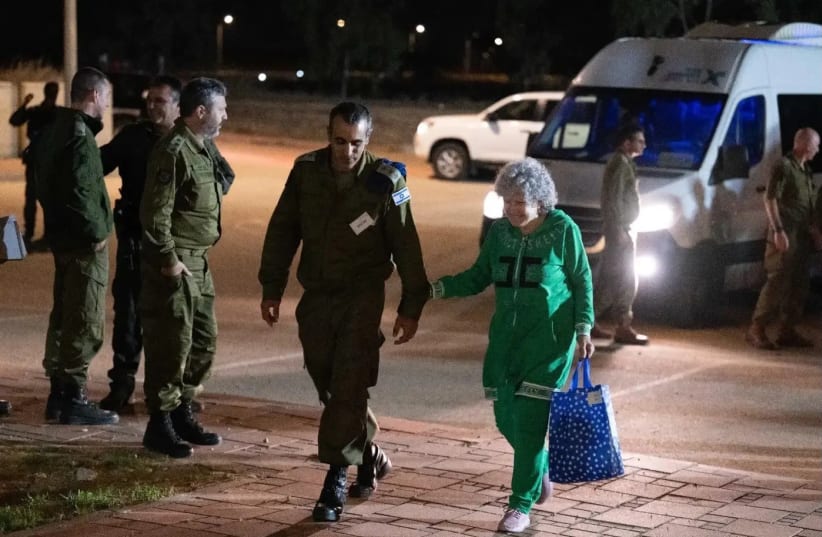In a New York Times opinion piece, a former Hamas hostage writes about her two experiences in Gaza as a lifelong resident of Kibbutz Nir Oz along the Gaza border, saying she will "not go to Gaza a third time."
The first time Ruti Munder, 78, visited Gaza was just after the six day war in 1967. Before the war, she writes that the area was under Egyptian control, and posed a threat of infiltrations by fedayeen and of “a feared invasion by Arab armies.”
After the war, the threat was lifted. At that time, Munder went on her first visit to Gaza. She went “on the back of a tractor” with her group of friends from the kibbutz to visit the beautiful beaches of Khan Younis. Since this visit, her interactions with Gazans grew. She said she had positive memories of meeting Gazan businessmen who traded with her brother-in-law in Be’er Sheva and came to her home as guests in Nir Oz. These businessmen spoke fluent Hebrew.
She remarked that, “for a time, you could imagine that we were destined to live together.” She said that she and those on the kibbutz did believe that Gaza would return to Egyptian control in exchange for peace and normalization but she did hope that the ties with Gazans would remain.
Munder taken as hostage to Khan Younis
She writes that the hopes of continued relationships with Gazans were extinguished particularly after the second intifada. After 2005, the threat from Hamas created a “shadow” over the Gaza envelope.
On October 7, Munder, her husband, daughter and grandson were kidnapped to Gaza. Her son was killed while defending the Kibbutz. She describes this as her second visit, saying, “Later that day I was back in Khan Younis, 56 years after my trip to the beach.”
She then discusses her experience as a hostage. She was locked in a small room on the second floor of a hospital, guarded by a man named Mohammad who was dressed in civilian clothes. Mohammad’s Hebrew was broken, unlike the Gazans just after 1967.
She ends her opinion piece with a desire to live alongside her Gazan neighbors in peace and mutual respect, but then also acknowledges that dream is a farfetched reality, particularly with Hamas in power. She speculates whether Gazans will “choose to concentrate their efforts on rebuilding Khan Younis rather than burning Nir Oz.”
She concludes that she will not go to Gaza a third time.

